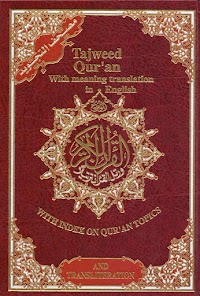Those who claim that the Qur’an was written by Muhammad (peace be upon him) have given him a different motive for doing so and can basically be divided into the following groups
– For Material Gain/ Power and Glory
– To Unite the Arabs or to morally reform them
– Epileptic Seizures or Self-Delusions
With Muhammad being perhaps the most well documented man in human history, we can easily examine these claims and compare them to his life.
I. For Material Gain/ Power and Glory
Some claim that Muhammad (Peace be upon him) wrote the Qur’an for some type of material gain or for power and glory. However, this claim is at odds with the historical evidence.
In fact, when one studies the history of Muhammad’s life, we find that he was actually materially more well off before claiming Prophethood than afterwards.
At twenty-five years old, Muhammad (peace be upon him) was married to the wealthy widow named Khadijah and lived a life of relative comfort. However, after his call to Prophethood, his standard of living declined dramatically, sometimes going two months without cooking anything, surviving only on dates and water, because of the extreme hardships that he and his family endured after proclaiming God’s message.
This would not be a temporary sacrifice, but a way of life for him until he died. At no time in his Prophethood did he ever live in a fancy palace, wear the finest clothes or enjoy the luxuries of this world. Even after the early Muslims became successful and started to make financial gains, Muhammad’s (peace be upon him) wives complained about their living conditions and wondered why they had to continue to live so poorly when there was (seemingly) no need.
A revelation then came from God stating:
O Prophet, say to your wives, “If you should desire the worldly life and its adornment, then come, I will provide for you and give you a gracious release. But if you should desire Allah and His Messenger and the home of the Hereafter – then indeed, Allah has prepared for the doers of good among you a great reward.” (Al-Ahzab 33:28-29)
One of Muhammad’s (Peace be upon him) companions, describing his room said:
“I noticed that the contents of his room comprised of only three pieces of tanned skin and a handful of barley in a corner. I looked but failed to find anything else. I began to cry. He (Muhammad, peace be upon him) said: “Why are you weeping”? I replied, ‘O’ Prophet of Allah! Why should I not cry? I can see the patterns of the mat imprinted on your body and I am also beholding all that you have in this room. O’ Prophet of Allah! Pray that Allah may grant ample provisions for us. The Persians and the Romans, who have no true faith and who do not worship Allah but they worship their kings, live in gardens with streams flowing in their midst. But the chosen Prophet and accepted slave of Allah should live in such dire poverty?!” The Prophet (Peace be upon him) was resting against his pillow, but when he heard me talk like this, he sat up and said, ‘O’ Umar! Are you still in doubt about this matter? Ease and comfort in the hereafter are much better than ease and comfort in this world. The disbelievers are enjoying their share of the good things in this world, whereas the Believers have all such things in store for them in the next.” (Muslim)
 |
When one studies the history of Muhammad’s
life, we find that he was actually materially more well off before
claiming Prophethood than afterwards.
|








Post a Comment
EmoticonClick to see the code!
To insert emoticon you must added at least one space before the code.